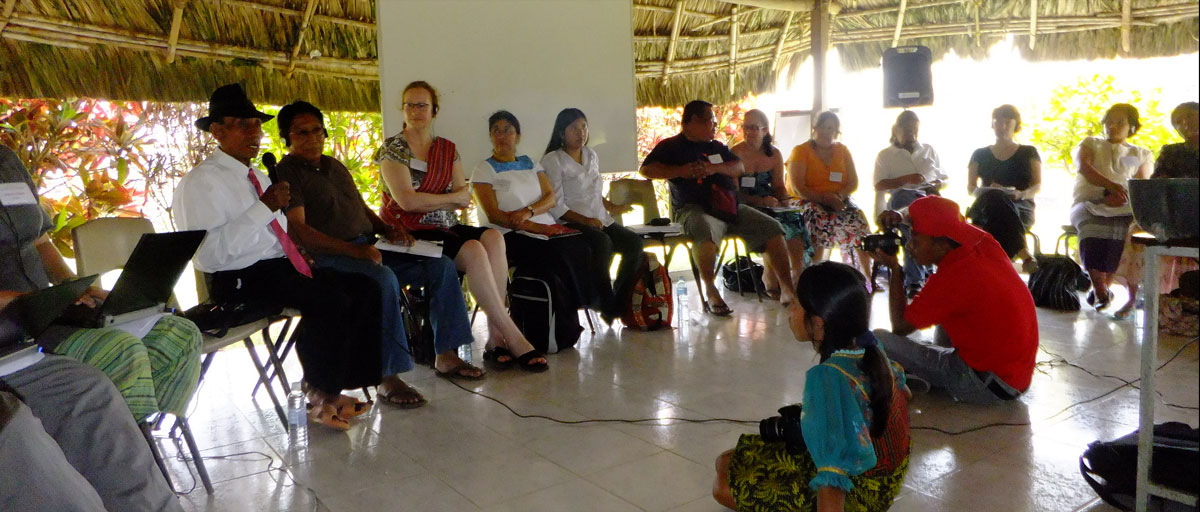KNOWLEDGE CO-PRODUCTION
How to design more reflexive knowledge co-production

A new paper presents a tool to critically explore when and how particular co-production approaches may be effective or constructive. One case used in the analysis was SeaBOS, an science-business collaboration to transform the seafood industry. Photo: J-B. Jouffray
Researchers identify six types of co-production and develop a tool to explore when and how particular approaches may be effective
- Knowledge co-production encompasses diverse aims, terminologies and practices
- Despite promise for developing legitimate solutions to complex challenges, there are growing concerns over framing, power, politics and impact
- New study identifies six modes of co-production and develops a new tool to open up reflexive dialogue and strengthen transparency in design choices
WEAVING RESEARCH AND PRACTICE: Collaborative governance, social learning, co-design, transdisciplinarity, and participatory action research—these are just a few of terms used to describe the varied processes of knowledge co-production which seek to connect researchers and societal actors to collaboratively produce knowledge for societal change.
But despite their promise for developing legitimate solutions to complex sustainability challenges, there are growing concerns.
Effective and constructive approaches
Very little is understood about how each approach frames the purpose of co-production, conceptualises power, approaches politics, and theorises impact pathways. And in some cases, co-production processes have entrenched social inequalities and power relations, or even failed to reach sustainability goals at all.
In a recent publication in Nature Sustainability, an international team led by Josephine Chambers from Wageningen University, with centre researchers Maria Tengo, Henrik Osterblom and Angela Guerrero, have developed a tool for researchers and societal actors to critically explore when and how particular co-production approaches may be effective or constructive.
The tool can be used to navigate the trade-offs and risks associated with challenges around power, impact, and scale, and aims to facilitate critical reflection on the design and practice of knowledge co-production processes.
Our analysis emerged from a desire to examine the choices we knowingly or unknowingly make when studying or participating in co-production efforts, both in aims that are set, and the design choices and resulting outcomes.
Josephine Chambers, lead author
Analysis of 32 diverse cases
The researchers analysed 32 cases that sought to advance sustainable development through co-producing sustainable interactions between people and the environment, fostering engagement between research, government, NGOs and diverse societal actors including CEOs, urban planners, indigenous leaders and artists.
They identified six modes of co-production and their unique potential to produce particular outcomes and risks:
- Researching solutions
- Empowering voices
- Brokering power
- Reframing power
- Navigating differences
- Reframing agency
These modes show great potential for changing narratives, policies, and institutions – in ways that help create more sustainable world. However, no mode is ideal. Each holds unique potential to achieve particular outcomes, but also poses unique challenges and risks.
“This collaborative paper offers a highly needed foundation for articulating and discussing the differences between different approaches when combining research and action for sustainability,” Tengö says.
“This will support better guidance but also better analytical tools for evaluating the challenges and outcomes in such projects”.
Reframing ocean sustainability
One case used in the analysis was Seafood Business for Ocean Stewardship (SeaBOS), an initiative in which co-author and centre researcher Henrik Osterblom has played a key role.
Through years of collaboration, SeaBOS created a safe space for international CEOs and scientists to reframe views of ocean sustainability problems to together develop governance solutions.
“Our analysis shows that co-production requires careful facilitation to bridge different perspectives, values and identities,” say the authors.
“We encourage the application of this practical, reflexive tool to open up dialogue and strengthen transparency in design choices in co-production processes for sustainability, and welcome future evaluations of its effectiveness for guiding scholarship and practice,” they conclude.
Chambers, J.M., Wyborn, C., Ryan, M.E. et al. Six modes of co-production for sustainability. Nat Sustain (2021). https://doi.org/10.1038/s41893-021-00755-x








